BABIL, Iraq - Suffering from a toothache in southern Iraq may land you in the chair of either of two brothers with an interesting story of adversity, perseverance, and the unique bond of identical twins.
U.S. Army Captains Aleksandr and Dmitry Baron both serve in the 3rd Armored Cavalry Regiment as dentists on two separate bases in southern Iraq. Both are augmenting the unit from their home base of Fort Stewart, Ga. Aleksandr deployed to Contingency Operating Site Kalsu at the end of October to work with the Regimental Support Squadron, and Dmitry joined the regiment's 3rd Squadron at Contingency Operating Site Echo in April.
Both men volunteered for the deployments, but Dmitry's recent arrival to the same unit in Iraq was mere coincidence, the kind of common occurrence that has kept these two twins together for most of their lives.
The tight bond between them was forged when their parents, Vitaly and Emma Baron, of Aberdeen, N.J., decided to take them from Russia to America when they were six years old.
"He just wanted a better life for his children," said Aleksandr, explaining why his father moved them from what is now the Ukraine to Brooklyn, N.Y.
"We did everything together. We got in trouble together. We'd be in the corner together. With a twin, that can be a lot of fun," said Dmitry.
The two recalled their assimilation to American culture as difficult, between learning a new language and being foreign kids in their New York City neighborhood.
"Being in a country that is as far as the United States is from Russia, to have him next to me was the best thing God could give me," said Aleksandr. "He was a best friend. Trying to get cultured to America is hard. With him by my side, we were partners all the way."
They were not welcomed by their school-age peers, and both brothers recalled being in numerous fights during that time. This kind of adversity brought them closer together.
"That's probably why we're so close and much closer than a lot of twins. We've been through a lot," said Aleksandr.
A brief recounting of the stories of these two brothers revealed that, whether through faith, fate, or circumstance, they have followed the same paths in life. Both attended Rutgers University for their undergraduate degrees and pursued their dental degrees at New York University College of Dentistry. The two were both compelled to serve in the military through the Health Professions Scholarship Program, offered by the Department of Defense to medical and dental school students.
"We had a . . . just a drive for it," said the two, with Aleksandr finishing Dmitry's sentence in a way that seemed to be part of their normal exchange.
Even when Dmitry decided to take a separate path and become a pilot in the Air Force, he jokingly described how he took the test and "never heard back."
In their roles as combat dentists in Iraq, the two provide what is called "expeditionary care" to Soldiers, responding to emergencies, filling cavities, and even performing cleanings to ensure Soldiers remain healthy and mission ready in a combat theater. Both men recounted how their jobs seemed to spill into other, more unexpected roles, as Soldiers have come in with greater needs than their dental utensils can resolve.
"I have people come in here to see me just because they want to talk." said Aleksandr. "They sit in the chair, they talk to me about their divorce, about family issues back home, about finance problems. I want this place to be a place for people to get away and just feel comfortable."
"People are appreciative of us," said Dmitry, describing the fulfillment of his job as a dentist in this unique environment. "We're like combat stress. We're leaders. It's a pretty big balance."
Aleksandr has performed yet another role as a triage doctor, making decisions on priority of care based upon the severity of Soldiers' combat wounds.
"I never thought I would do something like that," said Aleksandr. "I thought, you send me to a deployed environment, I'll take care of Soldiers, I'll comfort them, listen to them, care for their teeth, but I did not think I would be doing triage."
A recent visit by Dmitry to see his brother at Kalsu brought these two dentists together, thousands of miles from their Georgia homes. The uniqueness of their situation and their near-identical appearance turned several heads as they walked side by side on the base. For these two brothers, it was a chance to catch up and be together again, as always.
"He's here. It's unbelievable," said Aleksandr. "I'm praying to God that he just keeps following me."
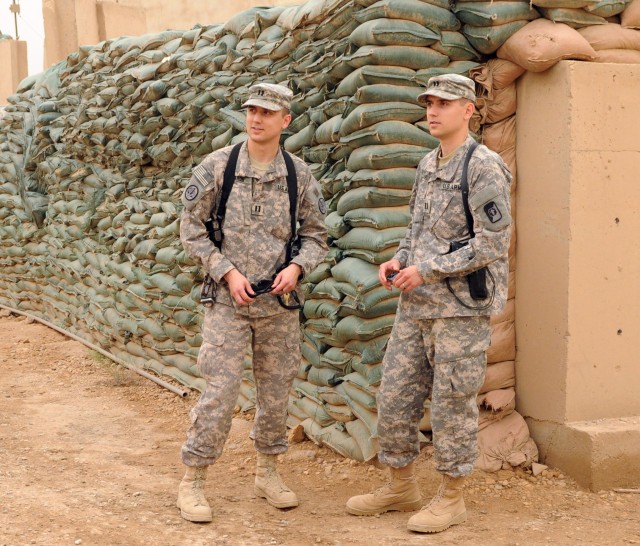
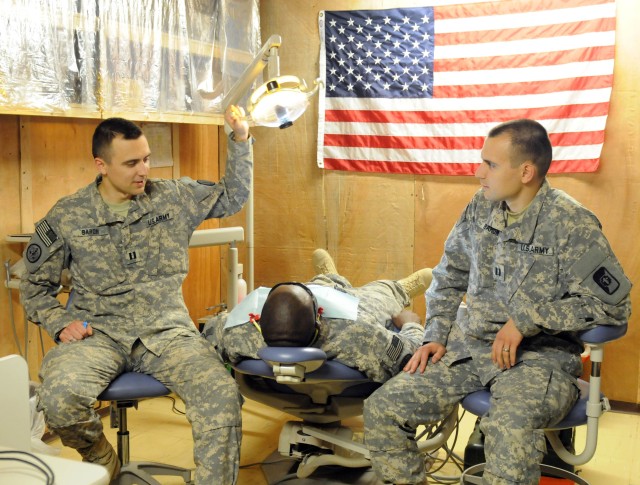
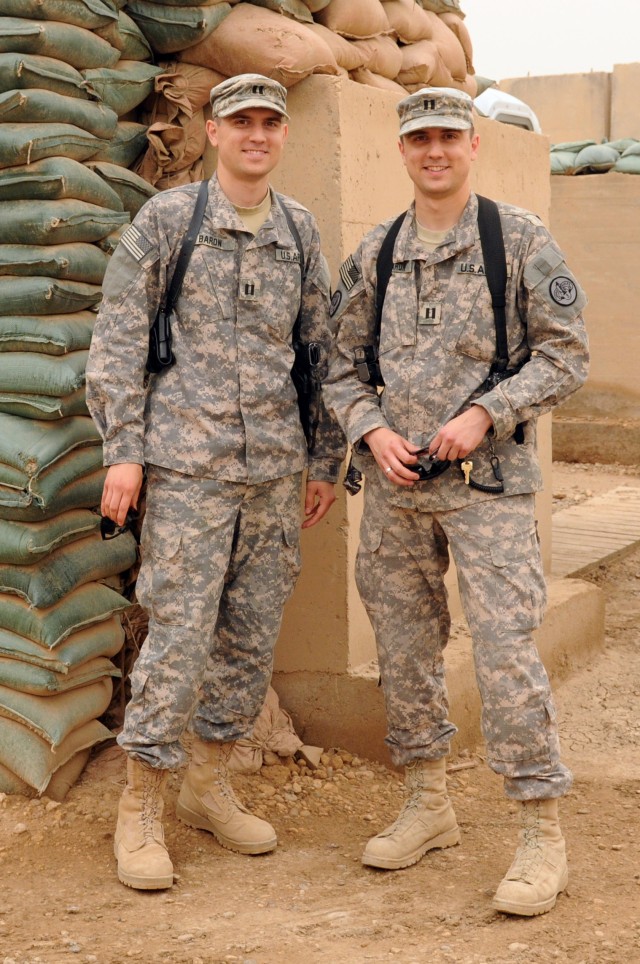
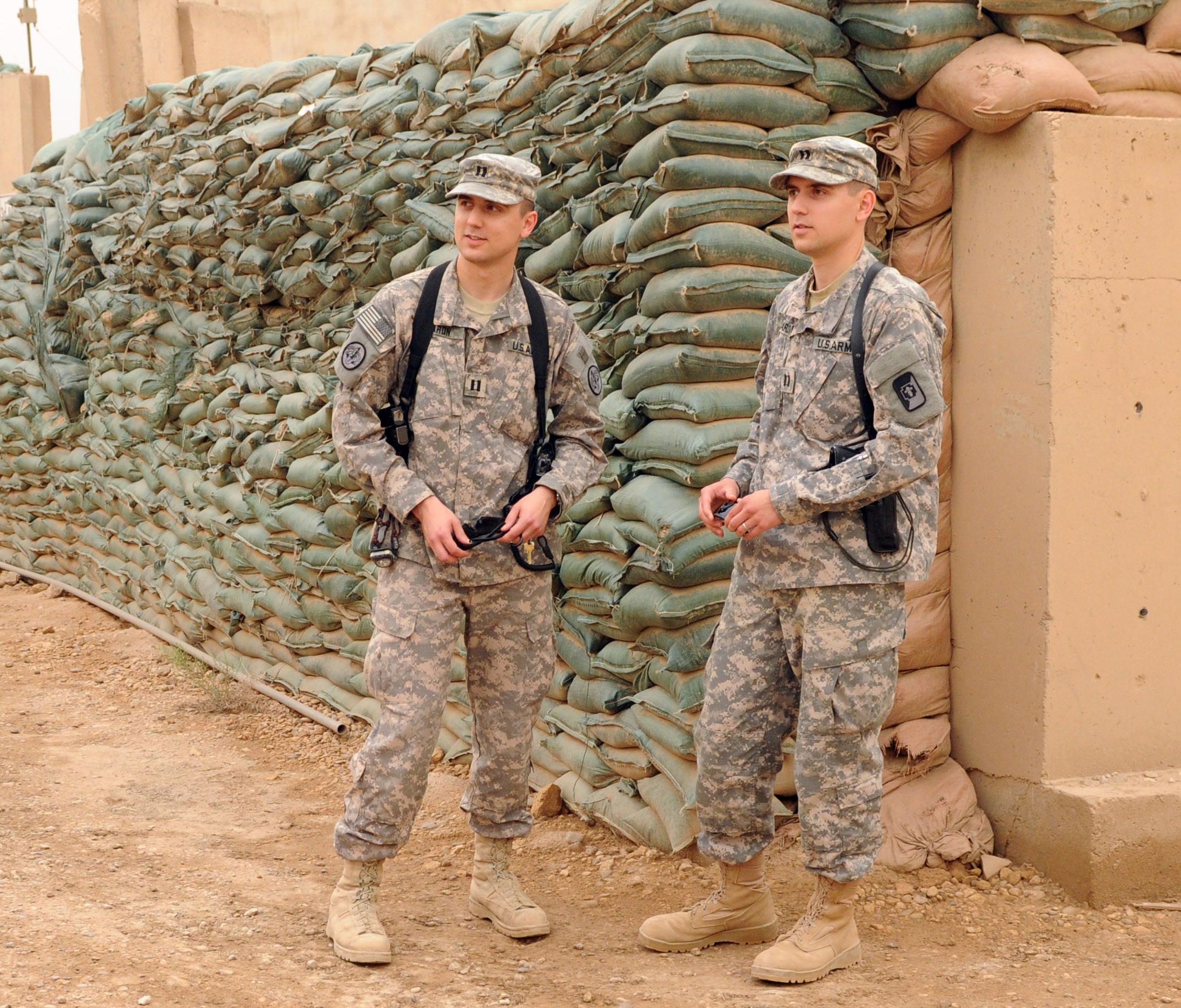
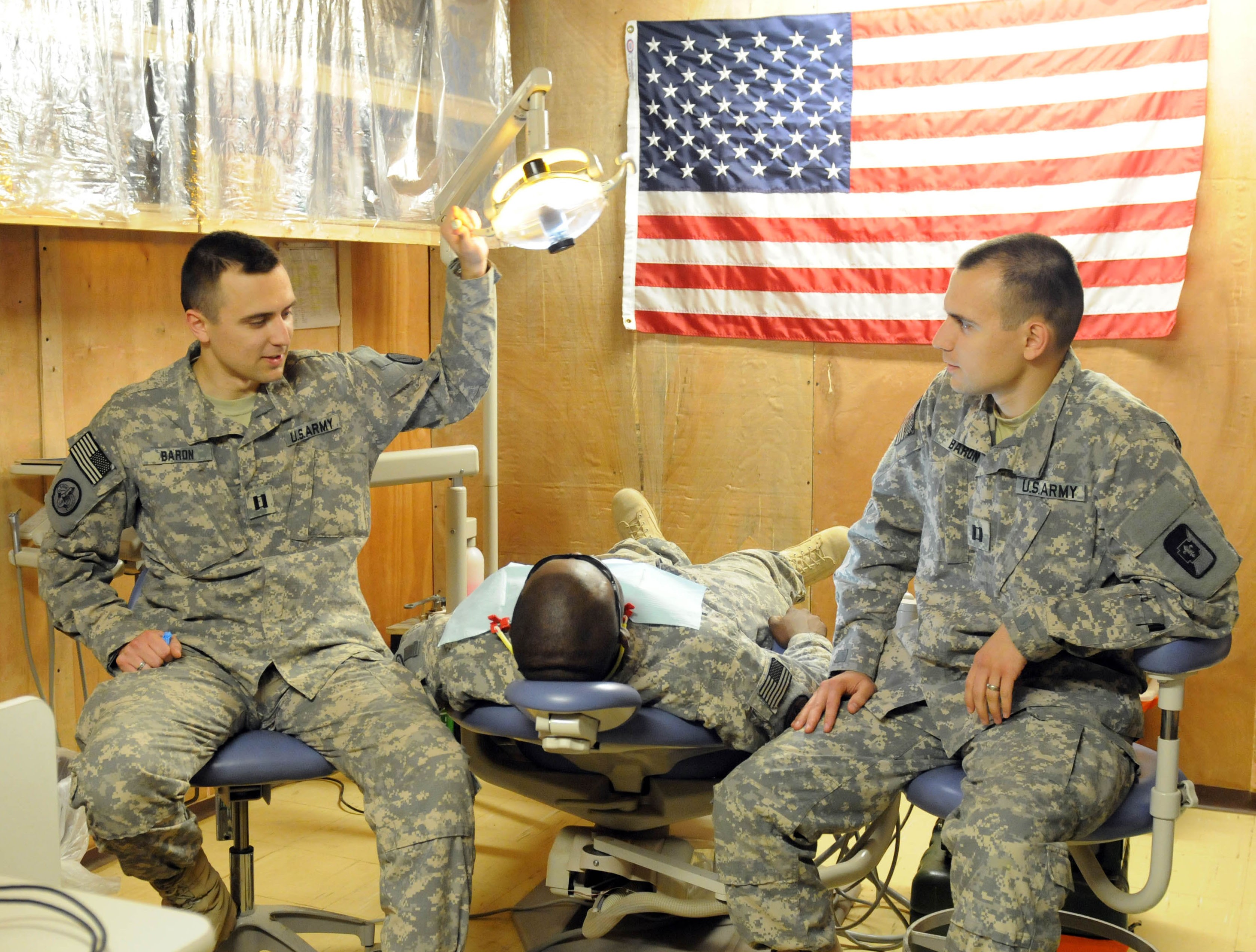
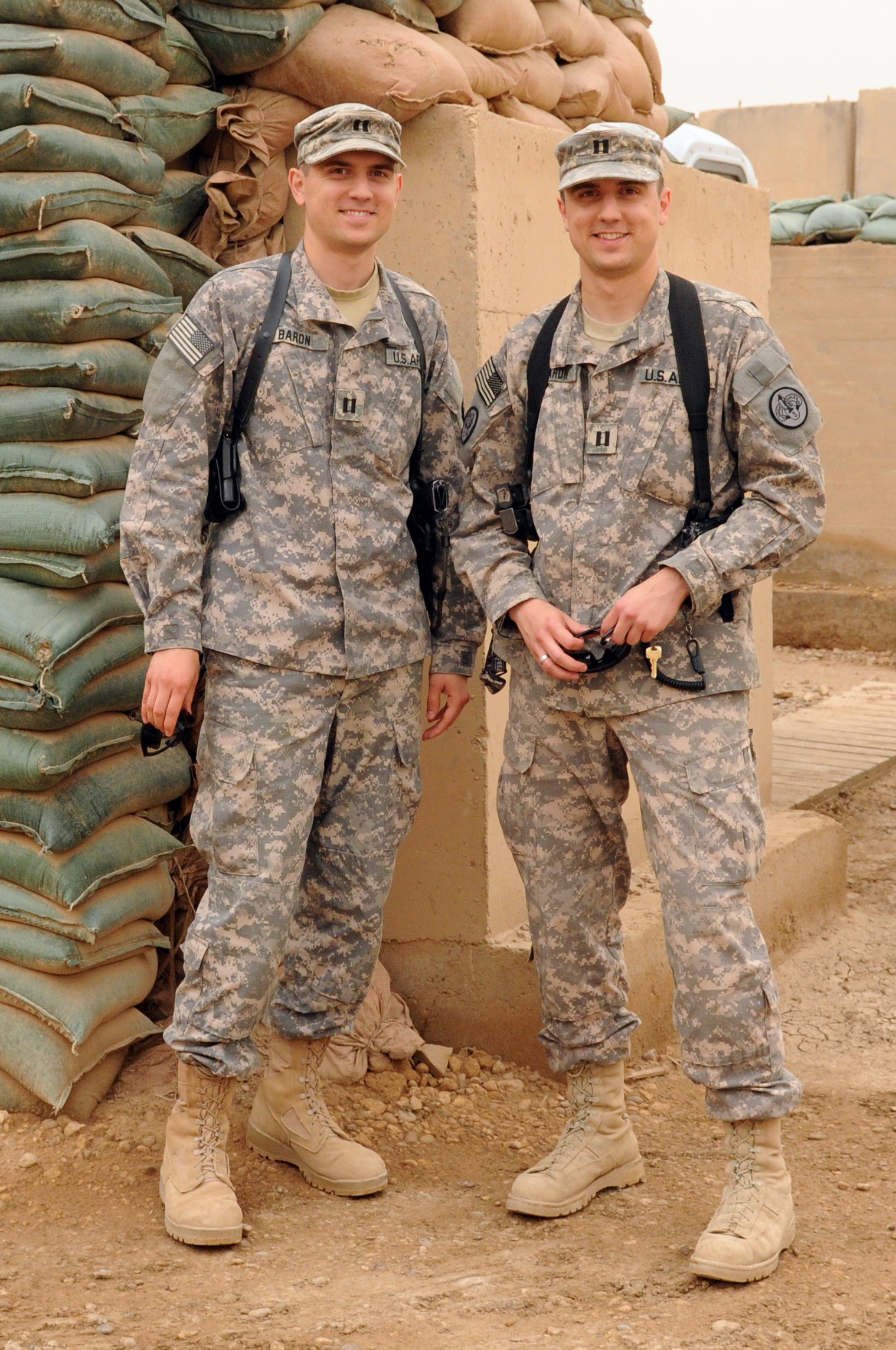
Social Sharing